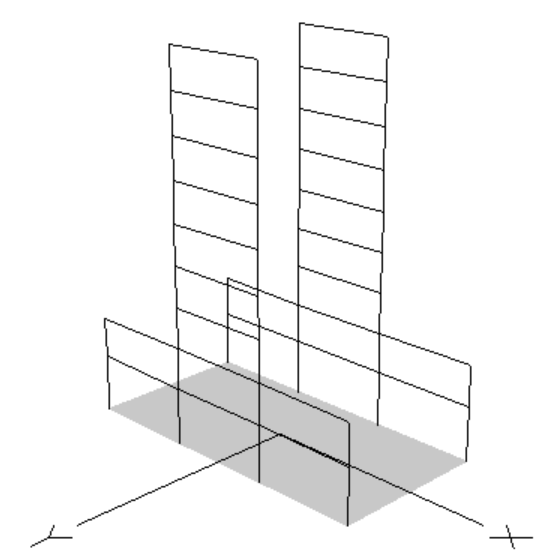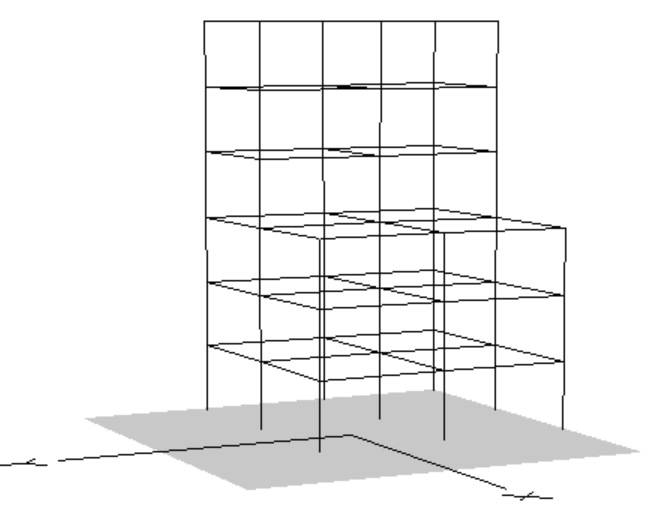Sample EX02: Shaking Table Test (Setback)
Basic Information | Commentary
Basic Information
Building Overview
Setback vertical irregularities in the building is one condition where there is a sudden change of upper stories bays because it has a smaller number of bays than the lower stories. The upper part is regarded as tower structure, while the lower part is regarded as base structure. The setbacks could influence the discontinuities in the mass, stiffness, and structural strength distributions. Hence, the analysis on setback buildings is necessary because its existence has considerable effect on structural response under seismic excitations. In this example, two sets of experimental tests setback RC buildings were modelled to show the accuracy of STERA_3D. These two specimens are representing two type of setback buildings, namely towered setback [1] and stepped setback [2].
Towered Setback: Wood in 1985
[1] Wood, S.L. Experiments to Study the Earthquake Response of Reinforced Concrete Frames with Setbacks. Doctoral dissertation, University of Illinois at Urbana- Champaign, IL, USA, 1985.

Stepped Setback: Shahrooz and Moehle in 1987
[2] Shahrooz, B.M.; Moehle, J.P. Experimental study of seismic response of RC setback buildings; National Science Foundation Report; UCB: CA, USA, 1987.

Database
Building information includes the source information of creating input data of STERA_3D, such as plan, elevation, section, material strength.
| Building Information (*.pdf) | Input file Model (*.stera) Wave (*.txt) |
STERA_3D version | Author | Date | |
|---|---|---|---|---|---|
| 1 | Model of Wood 1985 and Shahrooz_Moehle 1987 (Setbacks) | 10.8 | Taufiq Ilham Maulana, Badamkhand Enkhtengis |
2021.09.24 | |
| 2 |
Go to top of page
Commentary
Go to top of page

